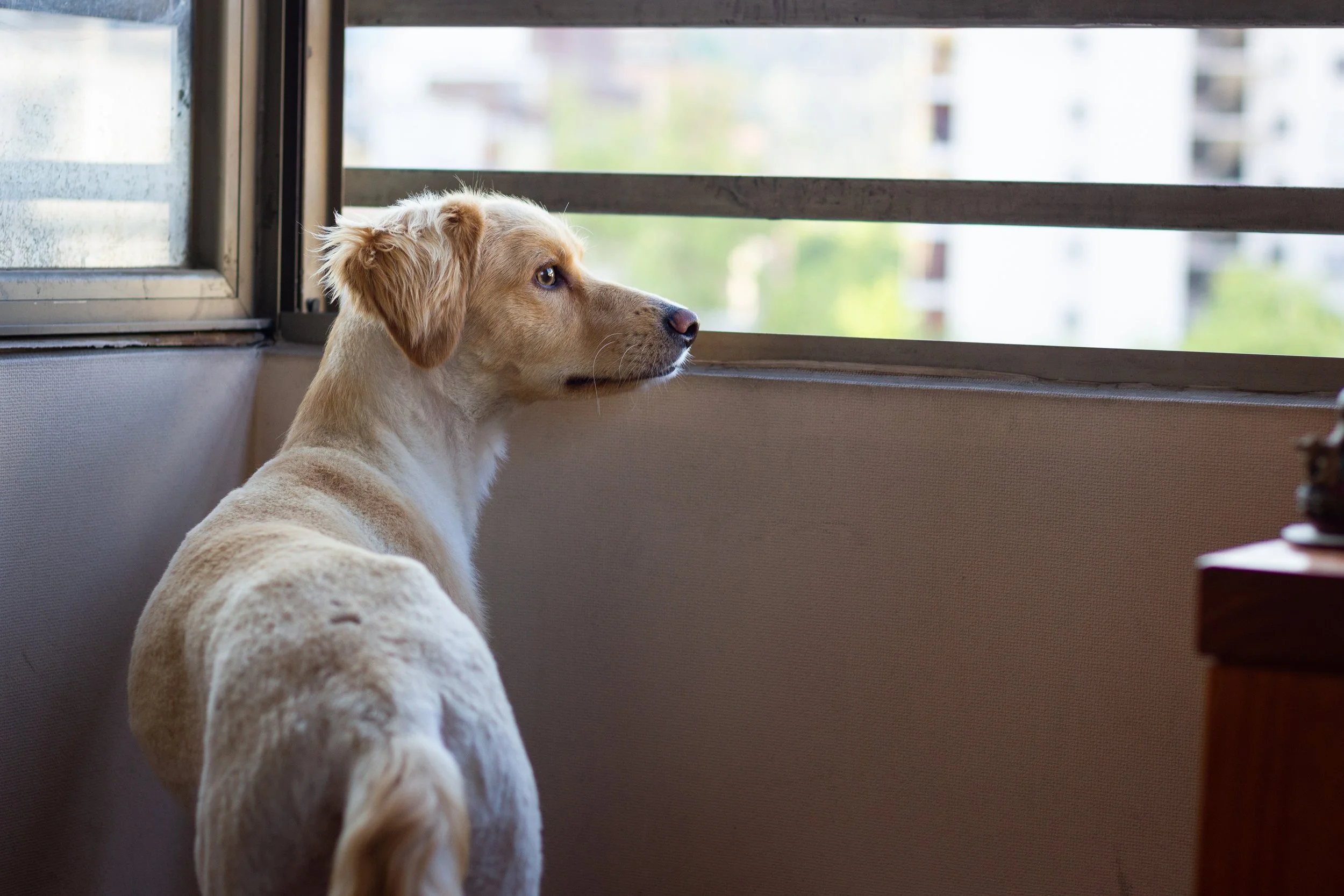Addressing Anxiety in Dogs: Natural Stress Management Tips
Anxiety is a common issue for many dogs, and it can take a toll on their mental and physical health. Whether it’s separation anxiety, noise phobia, or general stress, addressing these concerns is crucial for your dog’s well-being. Fortunately, there are natural, holistic ways to help alleviate anxiety and promote relaxation.
“Stress and anxiety aren’t just about emotional discomfort; they can also affect your dog’s physical health,” says Denise Bozenski, holistic pet health coach and owner of Fetch This Canine. “When left unaddressed, anxiety can lead to behavioral issues, digestive problems, and even immune system dysfunction.”
Learn more about Denise HERE!
Common Causes of Anxiety in Dogs
Before you can effectively address anxiety, it’s essential to understand what may be triggering it. Some of the most common causes include:
- Separation Anxiety: Many dogs experience distress when left alone or separated from their owners.
- Noise Phobia: Thunderstorms, fireworks, or loud noises can cause fear in some dogs.
- Changes in Routine: Dogs are creatures of habit, and disruptions in their daily routine can trigger stress.
- Health Issues: Pain or discomfort from an injury or illness can lead to anxiety.
As Denise explains, “Sometimes the root cause of anxiety is physical, which is why a holistic approach—considering both emotional and physical health—is essential.”
Natural Ways to Help Your Dog Manage Anxiety
Create a Safe, Calm Environment
One of the most effective ways to manage anxiety is by providing a secure environment. This can include a quiet space where your dog feels comfortable and safe.
“Dogs need a sanctuary where they can retreat when feeling overwhelmed,” Denise emphasizes. “Having a designated, quiet space with their bed and favorite toys can do wonders.”
Exercise and Mental Stimulation
Regular physical and mental stimulation can help reduce stress. A tired dog is often a calm dog.
“Exercise doesn’t just benefit your dog’s body; it’s also a great outlet for anxiety,” Denise says. “A walk or playtime helps release pent-up energy and reduces restlessness.”
For more information on enrichment, read here The Benefits of Enrichment Activities For Pets.
Herbal Remedies and Supplements
Certain herbs and supplements can help soothe anxious dogs. Ingredients like chamomile, valerian root, and CBD oil are known for their calming effects.
In her previous blog on Herbal Supplements For Dogs, Denise highlighted the power of natural remedies in supporting dogs' health. “Herbs can be a gentle, natural way to calm your dog without relying on medications,” Denise notes.
For additional supplement resources, read here The Benefits of CBD For Dogs.
Aromatherapy
Aromatherapy can be incredibly effective for calming anxious dogs. Essential oils like lavender and chamomile are known for their soothing properties.
“We can use the same relaxation techniques on our dogs that we use for ourselves,” Denise explains. “Lavender oil, for example, has a calming effect and can help reduce anxiety in dogs.”
Massage and Acupressure
Gentle massage and acupressure are fantastic natural methods to ease anxiety. These techniques can help your dog relax and promote the release of tension.
“As with humans, massage stimulates the nervous system and promotes relaxation in dogs,” says Denise.
To learn more about acupressure, check out How Acupressure Can Benefit Your Dog.
When to Seek Professional Help
If your dog’s anxiety persists despite natural remedies, it’s important to consult with a veterinarian or a certified canine behaviorist. Sometimes, underlying health issues or more severe behavioral concerns may need professional intervention.
“Holistic solutions are wonderful, but if anxiety continues or becomes severe, it’s important to work with professionals who can guide you through more advanced treatments,” Denise advises.
Addressing Anxiety
Managing anxiety in dogs is a process that involves understanding the root cause and incorporating natural, holistic practices. With the right approach, you can help your dog live a calmer, happier life. “Your dog’s emotional health is just as important as their physical health,” Denise concludes. To learn more about holistic health, visit Fetch This Canine.
FAQs
What are the signs of anxiety in dogs?
Signs include excessive barking, destructive behavior, pacing, drooling, and signs of fear like trembling or hiding.
Can natural remedies replace medications for anxious dogs?
In many cases, yes. Natural remedies like herbal supplements, aromatherapy, and exercise can significantly reduce anxiety. However, if the anxiety is severe, medications may still be necessary in consultation with a vet.
How can I help my dog with separation anxiety?
Start with gradual desensitization to being left alone, use calming remedies like pheromone diffusers or CBD and provide a safe space.
To stay up on the latest expert advice for all things holistic dog wellness and care, subscribe to our newsletter.


